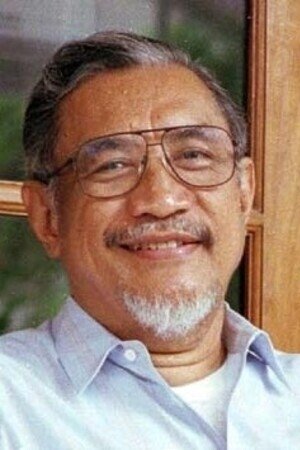Umar Kayam (1932-2002)
Alias:
Omar Khayyam
Birthplace:
Ngawi, Dutch East Indies [Indonesia]
Born:
April 30, 1932
Died:
March 16, 2002
He began his education at the Hollandsch-Inlandsche School (HIS) in Surakarta, where his father also taught. He continued his education at a MULO (Meer Uitgebreid Lager Onderwijs), then continued studying language at a high school in Yogyakarta until 1951. He graduated from the Faculty of Education at Gadjah Mada University in 1955, received a M.A. from New York University in 1963, and was awarded his Ph.D. from Cornell University in 1965. He was appointed director general of radio, television, and film in the Ministry of Information, a position which he held until 1969, when he began to serve as chairman of the Jakarta Arts Council (1969–1972). He served as a director for the Social Studies Training Centre at the Hasanuddin University in Makassar (1975–1976) and as a member of the MPRS (People's Consultative Assembly). He was a lecturer at the University of Indonesia and a senior fellow at the East-West Center in Honolulu (1973). He was a chairman of the National Film Council, a senior professor in the Faculty of Letters at the Gadjah Mada University and an emeritus professor at that same university until his death. A member of the advisory board of Horison magazine, chairman of the Jakarta Arts Institute and a member of the Jakarta Academy, a lifetime position since his appointment in 1988. Umar Kayam was an innovator in many aspects of his life. When he was a student at Gadjah Mada University, he was one of the founders of the campus theater. When he was the general director of radio and television, he was credited with helping to make the Indonesian film industry competitive. As the chairman of the Jakarta Arts Council (1969–1972), he was known for conducting meetings that addressed modern art and traditional art forms. He developed a sociological study of Indonesian literature and introduced the "grounded theory" to Indonesian social research. All of this provided inspiration for the emergence of new creative works in the fields of literature, art and art performances, among other things. He was the author of many short stories, novels, essays and children's stories, of which many are available in English. In 1987 he won the S.E.A. Write Award. From Wikipedia, the free encyclopedia.
